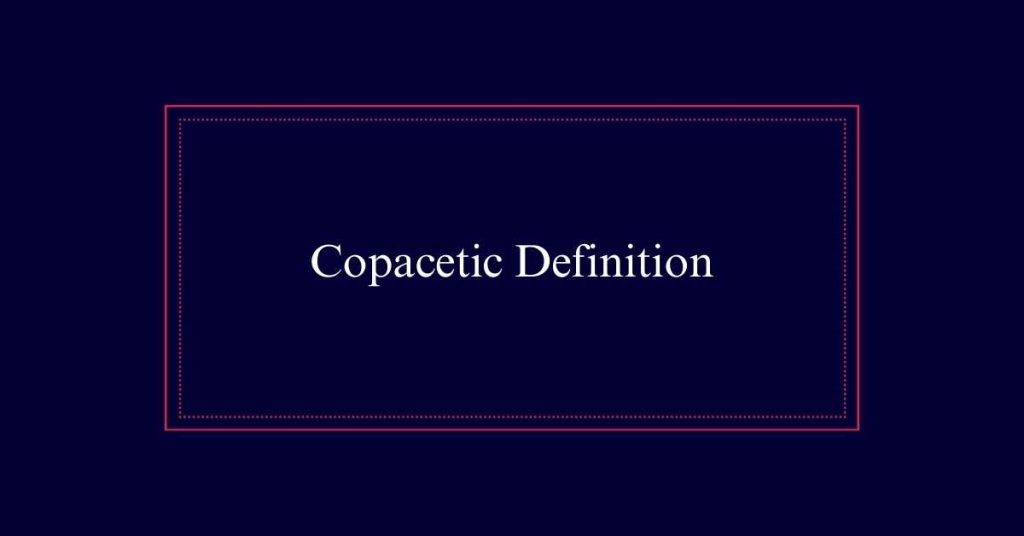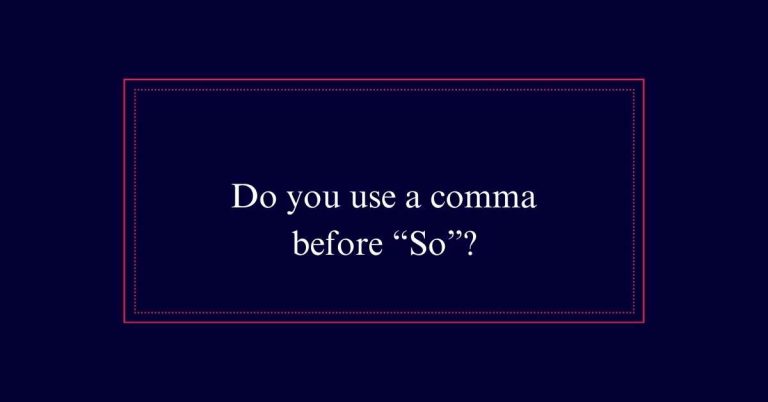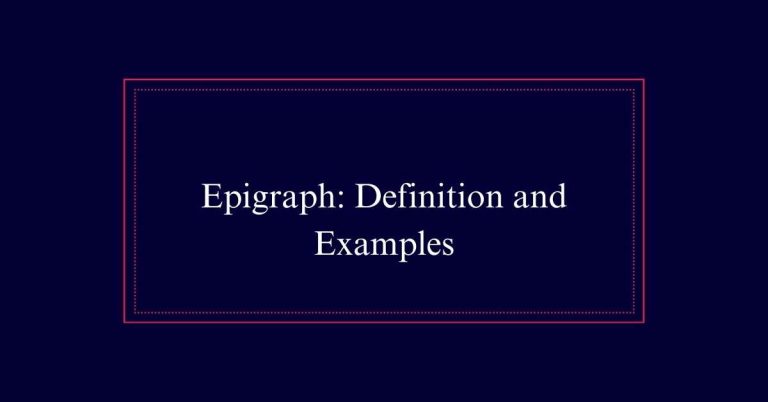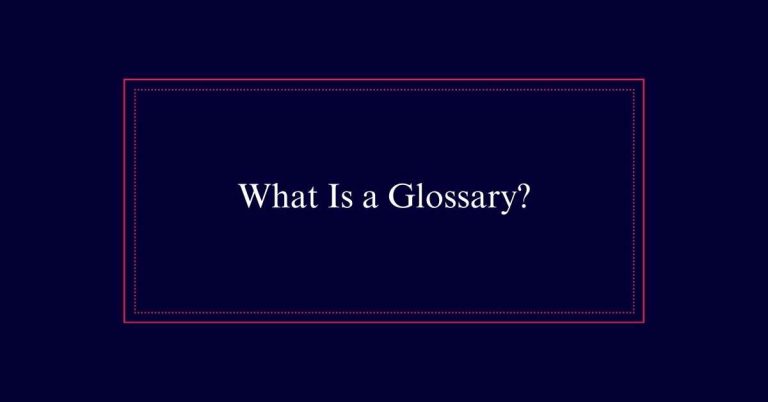Copacetic Definition
‘Copacetic’ is an adjective that describes something that is in good order, fine, or satisfactory. Originating as American and Canadian slang, it is used in both casual and formal contexts. The exact history of the word is unclear, with theories suggesting origins in Hebrew, African-American vernacular, or gangster slang. Regardless of its roots, ‘copacetic’ has been widely adopted in various forms of communication. Variants such as ‘copasetic’ or ‘copesetic’ also exist, but they all share the same meaning.
Meaning of Copacetic
The term ‘copacetic’ is an adjective that signifies something is in good order. It is considered slang in American and Canadian English.
When something is copacetic, it means everything is fine or OK. The word can be used interchangeably with other terms that indicate satisfactory conditions. Despite its common usage, the exact origin of the word remains unclear. Some theories suggest it may have roots in Hebrew, African-American vernacular, or gangster slang.
The first written record dates back to 1919, but it was likely in use before that. Over time, copacetic has become a versatile term, adaptable to various contexts, indicating that things are as they should be.
Usage in English
In modern English, ‘copacetic’ finds usage in both casual and formal contexts to indicate that everything is satisfactory. The term is versatile, appearing in various forms of communication, including media, literature, and everyday conversation. It can replace words like fine, good, or okay, making it a useful addition to one’s vocabulary.
| Context | Example Sentence | Source |
|---|---|---|
| Media | “The campaign insists all is copacetic.” | The Atlantic |
| Literature | “He assured everyone that the situation was copacetic.” | Novel Excerpt |
| Conversation | “All systems are copacetic, let’s move forward.” | Casual Dialogue |
Its flexible nature allows it to fit seamlessly into different settings.
Alternative Spellings
Numerous alternative spellings for ‘copacetic’ exist, including ‘copasetic’ and ‘copesetic’. These variants are recognized by several major dictionaries, reflecting the word’s flexible usage in English.
The Oxford English Dictionary and the American Heritage Dictionary list ‘copasetic’ as an acceptable alternative. Merriam-Webster includes ‘copesetic’, while Collins Dictionary even lists ‘copesettic’. While ‘copacetic’ remains the preferred and most commonly accepted spelling, these alternatives show the diversity in spelling preferences.
The existence of multiple spellings does not change the word’s meaning. It still conveys a sense of everything being in good order. This variety in spelling highlights the fluid nature of language and the adaptability of slang terms in everyday use.

Historical Usage
Historical usage of the term ‘copacetic’ dates back to at least 1919. The word appeared in written records during this period, though it was likely used in spoken language earlier.
The term has been a part of American and Canadian slang, with no clear origin. Some theories suggest roots in Hebrew, gangster slang, or African-American vernacular. Despite its uncertain origins, ‘copacetic’ gained popularity in the early 20th century.
It was used to describe something satisfactory or in good order. Over time, the term found its way into various forms of media, solidifying its place in the English lexicon.
Today, ‘copacetic’ remains a versatile word, used in both formal and informal contexts.
Examples in Sentences
Frequently, ‘copacetic’ is used to convey that everything is in satisfactory condition. For instance, a project manager might say, ‘The project timeline is copacetic,’ indicating no issues.
In everyday conversation, one might hear, ‘After sorting out the misunderstandings, everything is copacetic between them,’ implying that relationships are smooth.
In a business context, an executive could state, ‘Our financials are copacetic this quarter,’ meaning the finances are in order.
Another example could be a teacher assuring a student, ‘Your progress is copacetic,’ signifying that the student’s performance is acceptable.
These examples demonstrate how ‘copacetic’ can be used across various contexts to express that things are going well or in good order.
Media References
In various media outlets, the term ‘copacetic’ is frequently used to describe situations that are satisfactory or in good order. Mainstream publications and reputable sources often utilize ‘copacetic’ to articulate a sense of normalcy or contentment. The term’s flexibility and appeal are evident, as shown in the examples below:
| Source | Example Usage |
|---|---|
| Forbes | “Living standards back to starting point, not entirely copacetic.” |
| The Atlantic | “The campaign insists all is copacetic.” |
| National Post | “Opening hives, everything is copasetic.” |
| The New Yorker | “His demeanor was copacetic despite the setback.” |
These examples illustrate the term’s adaptability and acceptance across various media, reflecting its broad utility in modern language.
Speculated Origins
Despite its widespread usage in modern media, the exact origins of the term ‘copacetic’ remain a topic of much speculation. Various theories attempt to trace the word’s beginnings, but none have been definitively proven. Here are four speculated origins:
- Hebrew: Some believe it derives from the Hebrew phrase ‘hakol b’seder,’ meaning ‘everything is in order.’
- Gangster Slang: Another theory suggests it originated from early 20th-century gangster slang, perhaps coined by African-American communities.
- Cajun French: There is also speculation that it may stem from the Cajun French word ‘coupersetique,’ meaning ‘able to be coped with.’
- Italian: Lastly, some propose an Italian connection, with the word ‘copacetic’ possibly evolving from ‘copacetto,’ meaning ‘completely satisfactory.’
These theories highlight the word’s elusive and intriguing background.
Linguistic Theories
Exploring linguistic theories offers insight into the varied and complex origins of the term ‘copacetic.’ One theory suggests it stems from the Hebrew phrase ‘kol b’seder,’ meaning ‘everything is in order.’
Another posits connections to African-American vernacular, possibly derived from Southern U.S. slang. Some linguists argue for an Italian influence, while others see a link to Cajun French.
The gangster slang theory suggests it arose in the early 20th century among criminals. Despite these theories, no single origin is definitively proven.
Each theory reflects the diverse linguistic influences in American English. The term’s precise roots remain elusive, illustrating the dynamic and evolving nature of language.
Frequently Asked Questions
How Did Copacetic Become Popular in Modern English?
Copacetic gained popularity in modern English through its use in 20th-century American slang, media, and literature. Its widespread adoption was facilitated by its inclusion in dictionaries and diverse usage in reputable publications and everyday speech.
Can Copacetic Be Used in Formal Writing?
Yes, ‘copacetic’ can be used in formal writing, though it is considered informal. Make sure the context suits its informal tone. For strictly formal contexts, using words like ‘satisfactory’ or ‘acceptable’ may be preferable.
Are There Regional Differences in the Usage of Copacetic?
Yes, there are regional differences in the usage of “copacetic.” It is primarily used in American and Canadian English. Its usage and acceptance might vary, with some regions favoring alternative spellings like “copasetic.”
What Synonyms Can Replace Copacetic in Casual Speech?
Synonyms that can replace “copacetic” in casual speech include “fine,” “okay,” “all right,” “good,” and “satisfactory.” These alternatives convey a similar meaning of being in good order or acceptable condition.
Has Copacetic Appeared in Any Notable Literature or Films?
Copacetic has appeared in notable literature and films, including works by John Steinbeck and Stephen King. It is also used in the film “The Cotton Club,” showcasing its integration into various forms of media.






